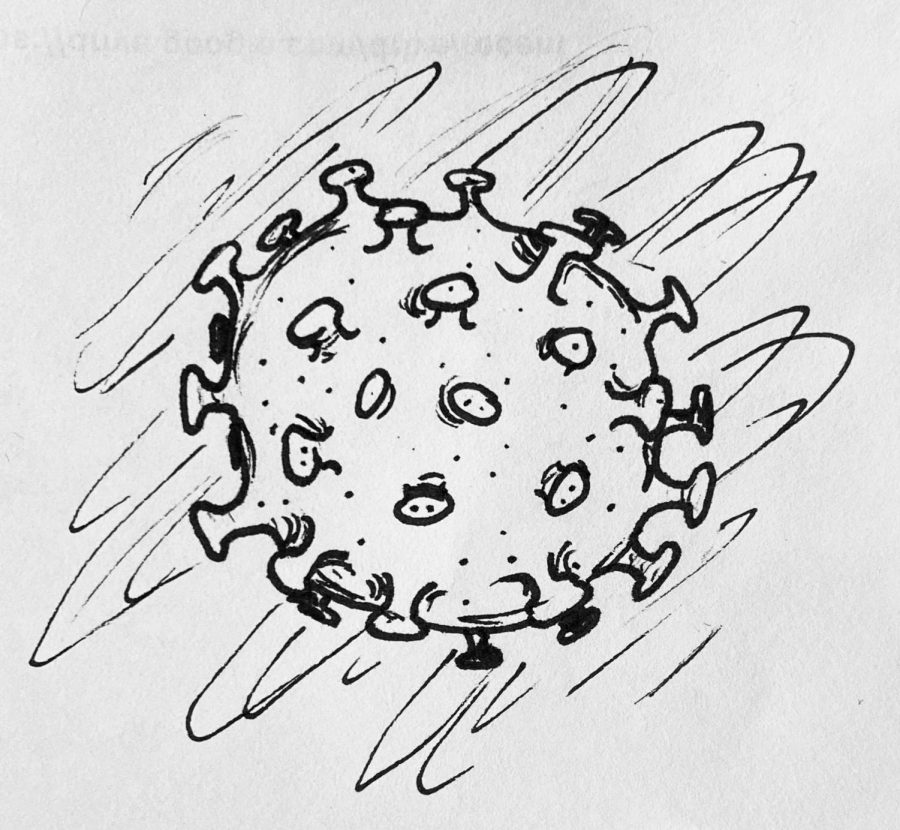New COVID-19 Variant: Cause for Concern, but Not Panic
December 25, 2021
As the new COVID-19 variant, omicron, makes headlines around the world, questions about its severity sweep our nation. The variant, originally from South Africa, has now been detected in over 40 other countries. The World Health Organization has deemed it a “variant of concern” due to the 30 mutations found in the spike protein and the rapid speed at which it is transmitted, which is nearly double that of the delta variant. However, researchers remain optimistic because it is easily detectable by swab testing, only causes mild symptoms, and vaccine scientists are confident in their ability to adjust the vaccine formula to best protect against new mutations.
With a 35% increase in South African cases in just one day, EuroNews reported that the omicron variant has taken over the country and introduced itself as the most contagious version of COVID-19 yet.
On Thanksgiving weekend, President Biden’s first call to action in response to the variant was to enforce travel bans to and from eight countries in southern Africa. This sparked controversy from African residents, who feel as though the US and other Western countries are blaming them for the variant, even though they were not provided with the vaccines and supplies needed to fight omicron in the first place.
According to a statement released by the South African Foreign Ministry, “Excellent science should be applauded and not punished,” and the increasing travel bans are “akin to punishing South Africa for its advanced genomic sequencing and the ability to detect new variants quicker.” The Foreign Ministry is urging countries to stop banning flights from South Africa, claiming it is unfair to halt their economy when the variant is now being found all over the world.
Indeed, South Africa is not the only national economy omicron threatens. A study from the National Bureau of Economic Research estimated trillions of dollars of debt if wealthy nations continue to hoard vaccines and let variants run rampant in underdeveloped nations. Nevertheless, Dr. Anthony Fauci said that “if you get vaccinated and boosted, you will have at least some degree of cross-protection … even against the Omicron variant.”
In the United States, the privilege of having the COVID-19 vaccine (and booster shots) both accessible and free is the best way to prevent more variants from forming and defeating the progress we have made over the past two years. Pre-existing safety measures, including wearing masks indoors and frequent hand washing, remain extremely important in order to keep the virus away.
When asked about how Omicron has affected in-person learning, CRLS history teacher, Mr. Benjamin Cohen stated to The Register Forum that “The new variant makes me feel extra apprehensive because I haven’t seen what percentage of students are actually vaccinated and I feel very unsafe not knowing who is entering my room.” With booster shots available for those 16 and up, and vaccines being provided at local pharmacies such as CVS, it is strongly encouraged for everyone to get vaccinated in the hope of returning to some sense of normalcy in the near future.
This piece also appears in our December 2021 print edition.









